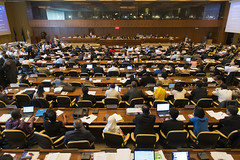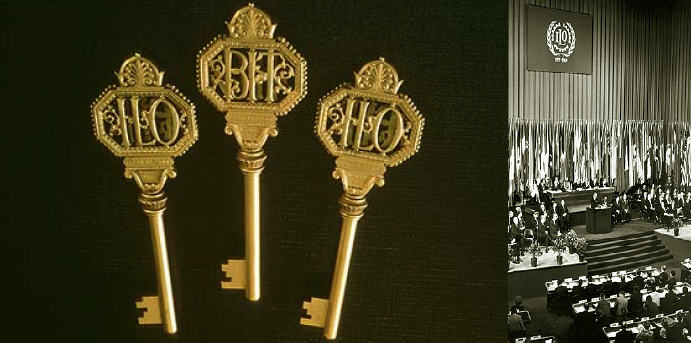In 1957, Poland ratified the
Freedom
of Association and Protection of the Right to Organize Convention, 1948
(No. 87) and the
Right
to Organize and Collective Bargaining Convention, 1949 (No. 98).
However, when martial law was declared in 1981, the Polish Government
suspended the activities of the Solidarnosc trade union and dismissed many
of its leaders and members.
In a letter dated 16 June 1982 and sent to the ILO Director-General, Marc
Blondel, workers’ delegate from France, and Liv Buck, workers’ delegate
from Norway, filed a complaint under Article 26 of the ILO Constitution against the
Government of Poland for non-compliance with the two conventions mentioned
above. Mr. Blondel and Ms. Buck, as their countries’ workers’ delegates to
the 68
th Session of the International Labour Conference, were competent
to file a complaint under article 26, paragraph 4, of the ILO Constitution.
On 27 May 1983, the ILO Governing Body approved, by 44 votes in favour and
6 against, with 5 abstentions, the recommendation of the
Committee
on Freedom of Association to have the case as a whole considered by a
commission of inquiry, in accordance with article 26, paragraph 3, of the
ILO Constitution. The Commission of Inquiry, whose members were designated
on 23 June 1983, held its first working session on 5 and 6 September 1983.
Chaired by Nicolas Valticos, the Commission formulated its conclusions and
recommendations on 2 May 1984; it found that there had been grave
violations of both ILO conventions. ILO invoked those conclusions when it
urged Poland to fulfil its obligations. The Polish Government subsequently recognized Solidarnosc and granted it legal status in 1989. For Lech Walesa,
Solidarnosc leader and later President of Poland from 1990 to 1995, “the
Commission of Inquiry created by the ILO after the imposition of martial
law in my country made significant contributions to the changes which
brought democracy to Poland” (see
Rules
of the game: A brief introduction to International Labour Standards, p.
83).













